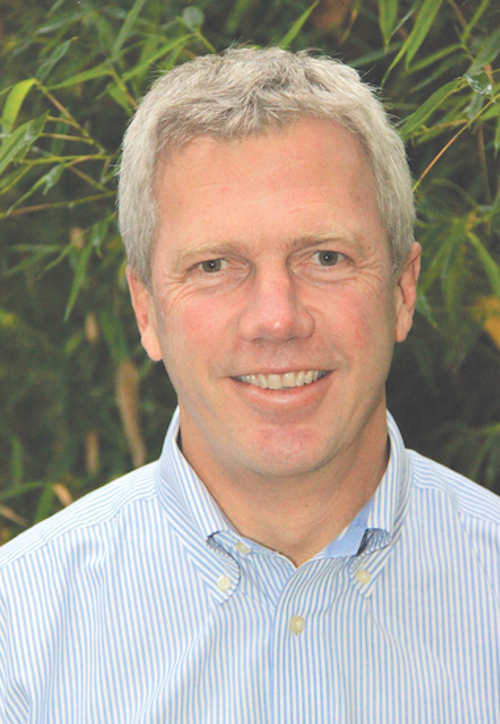ADA's amalgam waste best practices, research can make compliance easier for dentists

It's been almost 18 months since some dentists were required to be fully compliant with the Environmental Protection Agency’s dental amalgam rule, but in reality, most have been using amalgam separators and following the American Dental Association's and EPA's amalgam best practices for handling and disposing of amalgam waste for much longer.
"When the data from the EPA showed that the industrial use of mercury was harmful to the environment, mostdentists began following best practice guidelines recommended by the ADA and the EPA," said Manny Chopra, D.M.D., a prosthodontist in Cincinnati, Ohio, and chair of the ADA Council on Dental Practice.
In fact, long before the federal regulations on separation and recycling of amalgam took effect, the ADA Member Advantage team worked with the ADA Science & Research Institute through the ADA's Professional Product Review program to study and evaluate amalgam separators to find the best possible amalgam waste solutions for ADA members.
Amalgam recovery companies' systems were carefully tested by ADA Clinical Evaluators Panel volunteer dentists. Companies who passed the first review were invited to submit proposals that were thoroughly reviewed by a multi-divisional ADA team of dentists and scientists. The two finalist companies then underwent an even deeper review of their internal processes, marketing materials and financial statements.
After narrowing the field to one candidate, the company was then studied by an independent environmental consultant, who reviewed the company's amalgam handling processes to confirm they comply with all regulations and best practices. ADA Member Advantage staff met with the company's account team to ensure they would be able to provide the highest quality service to ADA members. The ADA Member Advantage Board of Directors, many of whom are volunteer dentists, named HealthFirst's Rebec Environmental as its endorsed provider for amalgam separation and recycling.
Timothy Reber, owner of HealthFirst's Rebec Environmental in Lynwood, Washington, said his company prepared for the amalgam separator rule for more than two decades with a mission to design and produce the most efficient and durable systems possible for their customers.
Mr. Reber started working in the dental industry in 1972 as a service technician and later asa sales representative, allowing him to learn how to work with dental offices firsthand.
"When the issue started heating up in Seattle and King County in the early 1990s, I asked 20 of my clients what they would want to see in an amalgam separator if a law was passed," Mr. Reber said. "Based on their feedback, I was able to design a product that was affordable, out of sight and out of mind, freed staff from touching or smelling the waste at the back end and incorporated easy documentation."
Mr. Reber said amalgam separators are not a one-size-fits-all product, so Rebec Environmental designed systems to work in a variety of practice and clinic sizes. Customers answer a questionnaire that helps thecompany determine what system would work for their office and provide a year's worth of collection capacity. Since the majority of waste filtered is pumice from prophy paste and/or chairside polishing, he adds that it's important for each practice to get the right capacity to meet its needs and keep its maintenance costs to a minimum.
David S. Russell, D.D.S., a dentist in Seattle, Washington, said he upgraded his amalgam separator system in 2020, relocating the system to a storage room during a renovation of his 10-chair office. But he found his new amalgam separator just didn't have the capacity of his previous Rebec Environmental system. Instead of yearly maintenance to change out the collection box,he said his unit was filling up every three months.
Dr. Russell worked with Rebec Environmental to install a customized amalgam separator system that would give the practice enough capacity for yearly collection box exchange and maintenance.
"A Rebec technician came out and installed it on a Saturday, so we didn't have any disruptions in providing patient care," Dr. Russell said. "They can configure a system that fits any office perfectly — nearly any size or shape. After we were up and running, I have found their customer service has been tremendous. You can call them anytime with a question, and they are very responsive. And they offer flexibility with maintenance. If you find your collection box still has a lot of capacity when you are nearing the one-year mark, you can move your maintenance call back."
ADA members can receive up to 50% off a new Rebec Environmental amalgam separator system, including fine indemnification and guaranteed once-a-year recycling. Visit rebecenvironmental.com or call 1-800-569-1088.
The ADA offers a variety of other resources on amalgam separators, including Amalgam Separators and Waste Best Management and Best Management Practices for Amalgam Waste .



